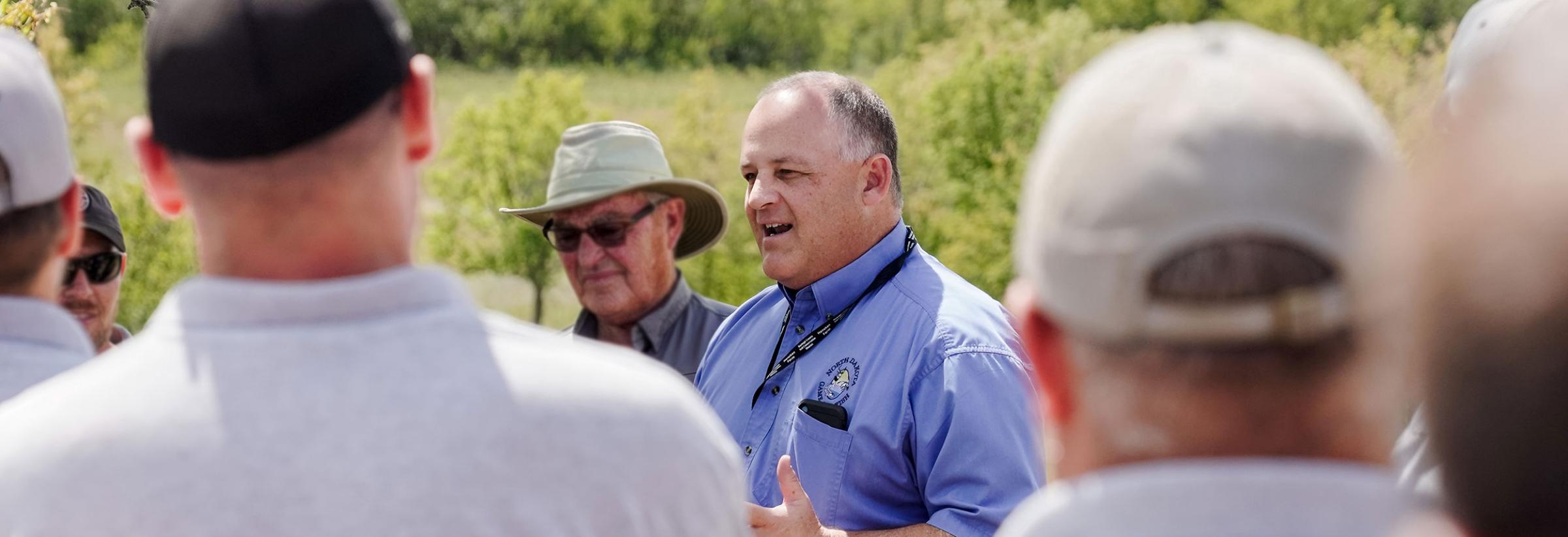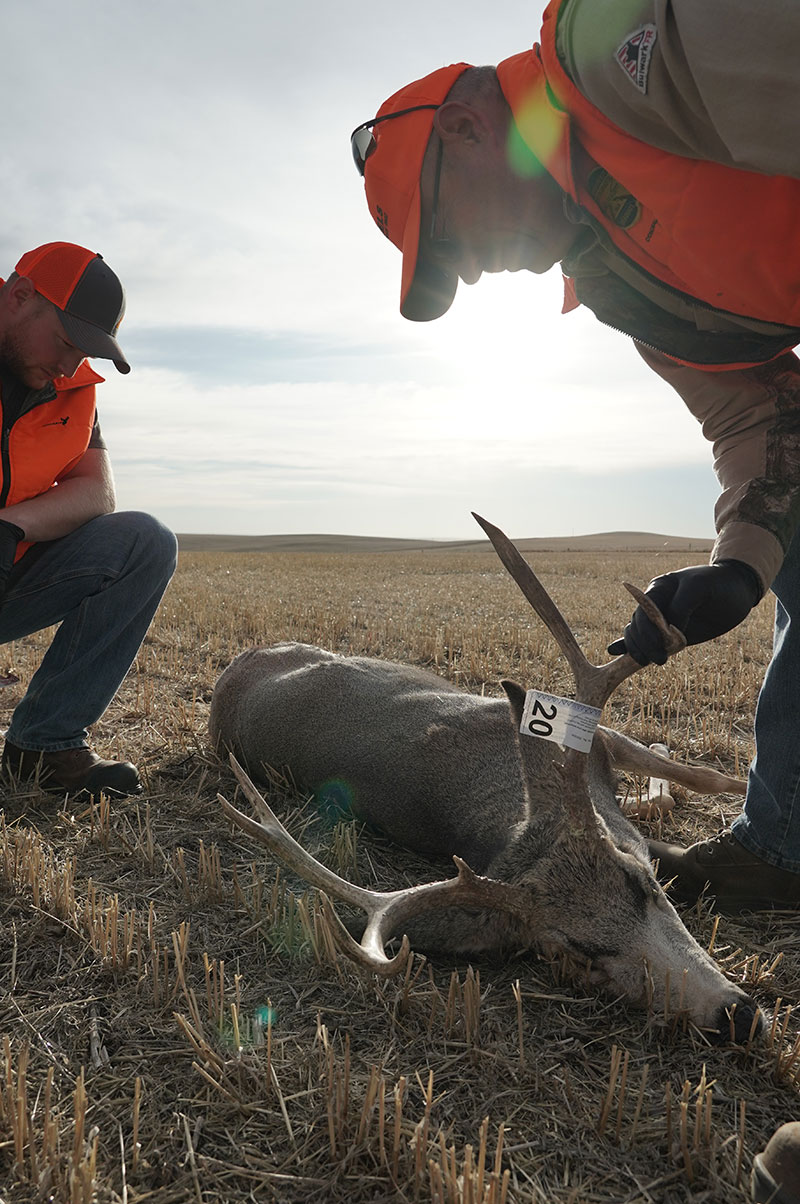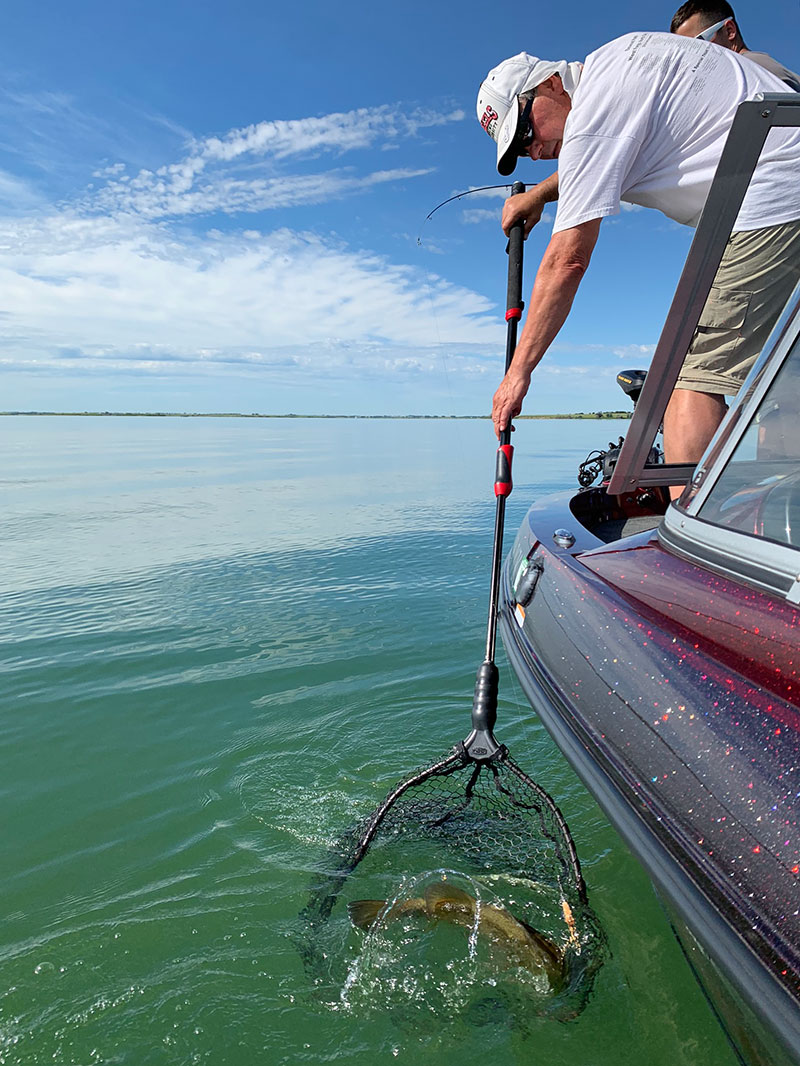
North Dakota Native Leads Agency

North Dakota’s hunting heritage is strong, and Williams believes that’s one of the reasons why many people choose to live here, despite the lure of packing up and relocating elsewhere.
Jeb Williams was appointed director of the Game and Fish Department by Gov. Doug Burgum in late August after more than 20 years with the agency, the last seven as wildlife division chief.
“Jeb has a strong track record as a highly capable leader on issues affecting fish and wildlife resources and as an effective communicator in relating those issues to North Dakota’s hunters and anglers and the general public,” Burgum said. “His extensive background, commitment to public service and trusted leadership within Game and Fish will benefit North Dakota citizens and the management of our state’s abundant wildlife resources.”
Williams replaced Terry Steinwand, who retired July 31 after nearly 40 years with the Department, 15 years as director.
Williams joined the Game and Fish Department in 1999 and served in a variety of roles including natural resource technician and biologist, outreach biologist and wildlife resource management supervisor. He was named chief of the Department’s wildlife division in 2014 after having served as assistant wildlife chief since 2011.
“I've served the agency in several different capacities, from a seasonal employee, to a biologist, to a supervisor, to an administrator of a division and now, which is something I’m proud of,” Williams said. “Taking that route, I believe, just puts me in a decent position to have good understanding and knowledge of the Department and the way it works.”
Williams is a North Dakota native, grew up in Beach and earned a bachelor's degree in biology from Dickinson State University.
Stepping away from his role as wildlife division chief, the Department’s largest division, wasn’t easy, he said, but Williams embraces his new position, which is certainly saddled with elevated expectations.
“The wildlife division chief position is a tremendous job because you work with really passionate people, a very professional staff, and just being able to support them in the role that I had was very rewarding,” Williams said. “And now to be able to support the entire agency from the director’s role is, again, something that I don't take lightly … it’s a responsibility that I'm really looking forward to.”
Yet, as a native North Dakotan he understands the sometimes-volatile nature of life on the Northern Plains, and how the weather, no matter the time of year, can influence the state’s wildlife and human populations.
“We know in North Dakota that we will have weather swings that can be very challenging for agriculture producers, ranchers, wildlife, wildlife habitat and our fisheries,” he said. “It's going to be interesting moving forward to see if the drought of 2021 turns into a long-term drought situation or if we’re going to break out of it in the short-term. That's going to be the big question moving forward.”

A North Dakota native, Williams is proud of the state’s diversity in hunting and fishing opportunities. With a cord number of managed waters on the landscape, for example, anglers can pursue big smallmouth bass (pictured) or pitch jigs to walleye and a number of other species in the state’s 440 waters.
As timing would have it, Williams was appointed director as drought conditions across much of the state caused hardship and left many wondering when it was going to rain again.
Safeguarding North Dakota’s natural resources and creating opportunities for people to enjoy the bounties found across the landscape no matter the weather, is something Williams takes seriously.
“As you look across North Dakota, you see a lot of passion. You see a lot of people who choose to make North Dakota home because of our outdoor resources,” he said. “We know North Dakotans are hard working. We know they're well-educated and can go just about anywhere in the country to make a home, but to choose here, in part, because of our outdoor opportunities is a really powerful thing.
“North Dakota's diversity plays a role in that, whether it's fishing, hunting, waterfowl hunting, upland game hunting, big game hunting … you name it, we have it in North Dakota,” he added. “Understanding that it’s very attractive to a lot of different people is something I definitely take very seriously.”
Williams said it’s often lost on biologists, himself included, the economic impact hunting and fishing have in the state.
“But it has been something that I've taken a keen interest in, as far as looking at some of those details in the last number of years and just seeing the economic impact that the outdoor recreation industry has on small towns and big towns in North Dakota, which is significant,” he said.
There's no doubt that outdoor recreation is not the economic engine in North Dakota, Williams added, but it's a cylinder in that engine.
“And if that isn't continued in the relationship that it has been, I think that you start seeing some problems with that engine. I think that we definitely play a role in that,” he said.
While attention to chronic wasting disease, aquatic nuisance species, wildlife habitat, the Department’s R3 program and other initiatives on land and water will continue under his leadership, Williams said focus should also center on the state’s private landowners.
“As you know, 93% of North Dakota is in private land ownership, as an agency we need to make sure we have as good a relationship as we possibly can with private landowners, because those outdoor opportunities are a lot of times on the backs of private landowners,” he said. “We need to make sure that we continue to improve those relationships the best way possible. We need to make sure we look at different programs that are available for private landowners to give them additional options for their operation.
“I know an awful lot of people in North Dakota from the sportsman side of things that are very passionate, but I know a lot of landowners, agriculture producers in North Dakota who are also very passionate about hunting and fishing, too,” he added. “So, there doesn't necessarily have to be a divide. As an agency, we just need to acknowledge that those challenges do exist, but through lots of communication, opportunities, programs and discussions that include landowners, we can continue to make sure that relationship is a positive one.”


